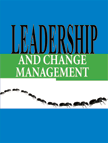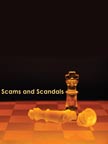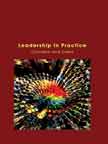Richard Branson/Herb Kelleher - Leader Extraordinaire
|
|
ICMR HOME | Case Studies Collection
Case Details:
Case Code : LDEN021
Case Length : 08 Pages
Period : 1973-2002
Pub Date : 2002
Teaching Note : Available
Organization : Virgin Group, Southwest Airlines
Industry : Aviation
Countries : USA
To download Richard Branson/Herb Kelleher - Leader Extraordinaire case study
(Case Code: LDEN021) click on the button below, and select the case from the list of available cases:

Price:
For delivery in electronic format: Rs. 300;
For delivery through courier (within India): Rs. 300 + Shipping & Handling Charges extra
»
Leadership and Entrepreneurship Case Studies
» Case Studies Collection
» ICMR HOME
» Short Case Studies
» View Detailed Pricing Info
» How To Order This Case
» Business Case Studies
» Area Specific Case Studies
» Industry Wise Case Studies
» Company Wise Case Studies

Please note:
This case study was compiled from published sources, and is intended to be used as a basis for class discussion. It is not intended to illustrate either effective or ineffective handling of a management situation. Nor is it a primary information source.
Chat with us

Please leave your feedback

|
|




<< Previous
Richard Branson - A Loony Leader
|
Born in 1950 in a traditional Christian family, Branson was not a brilliant
student. As a boy he was a shortsighted dyslexic,1
had a tough time memorizing and reciting text, and performed terribly at
standard IQ tests. But he was very good at sports and was seen as someone with
the desire to succeed.
According to analysts, since his childhood, Branson had a
thirst for success and a special quality to connect with people. This was what
enabled him to energize the ambitions of others so that they also could rise to
realize their dreams.
As a teenager (17 years), frustrated by
the rules and regulations of his school (Stow School), Branson and his friend Jonny
Gems started a student magazine called the 'Student.'
|

|
They started out with just four pounds given by Branson's mother. The magazine
captured the student activism of the late 1960s and featured celebrities.
Soon after the release of the first issue in 1968, the headmaster of the
Stow School complimented both Branson and Gems and said, "Congratulations,
Branson.
|
|
I predict that you will either go to prison or become a
millionaire." The first edition was so impressive that BBC tracked down
Branson and made a documentary called 'The people of tomorrow.' This
recognition helped Branson and his magazine grow.
Branson's entrepreneurial success continued when he opened a mail order
record retail business and named it 'Virgin.' When asked about why he chose
the name 'Virgin,' he replied, "I was a virgin in business." Even this
venture was highly successful. Later on he opened a record shop at Oxfordstreet in London. In 1972, Branson started a recording studio at Oxfordshire. Virgin recorded its first artist Mike Oldfield's
'Tubular Bells' in 1972, which went on to sell more than five million
copies. |
The Virgin Record Company signed on many superstar and music group such as Genesis, Phil Collins, Peter Gabriel, Simple Minds, The Human League, Bryan Ferry, Culture Club, Janet Jackson, Steve Winwood, Paula Abdul, Belinda Carlisle and The Rolling Stones. By the early 1980s, 'Virgin records' was rated among UK's top six recording companies.
In 1984, one of Branson's friends suggested starting a passenger airline service
between London and New York. The idea was labeled as crazy by Branson's
colleagues because it was too ambitious and difficult.
Excerpts >>
1]
A learning disorder marked by impairment of the ability to recognize and
comprehend written words.
|
|










